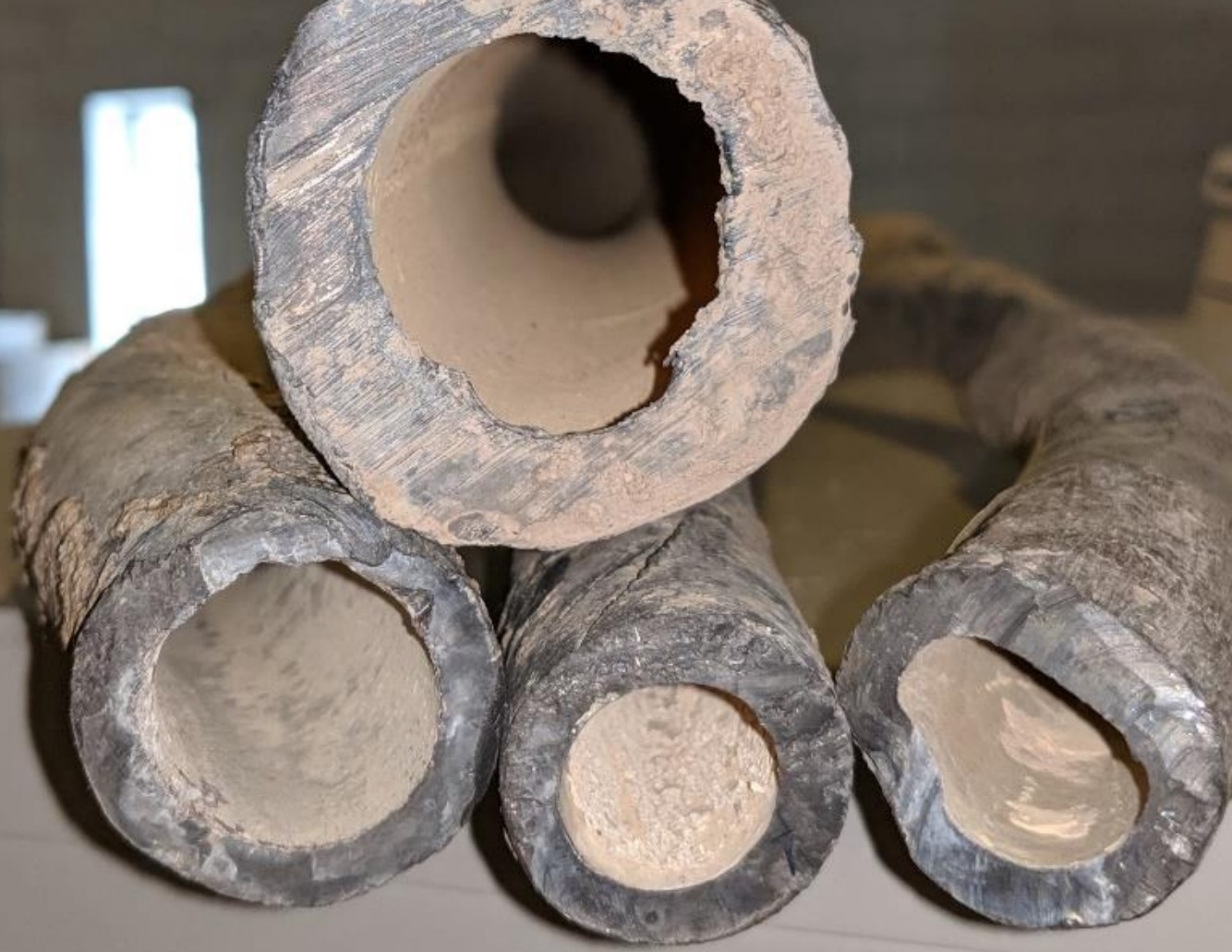New Program for Lead-Poisoned Children
Medical College of Wisconsin program seeks improved response to kids testing positive.

Lead service lines replaced by the Milwaukee Water Works with corrosion control visible in pipe. Image from Milwaukee Water Works.
A new program from the Medical College of Wisconsin seeks to create a more efficient response process for children who have tested positive for lead poisoning.
The program, Clinical and Community Solutions to Lead Free Children, launched this month. It is funded in part by a $400,000 grant from Advancing a Healthier Wisconsin and is expected to last three years.
Myah Pazdera, program coordinator with the Medical College of Wisconsin’s Office of Community Engagement, said the program’s main goal will be to better connect departments and organizations that handle lead response and to increase communication between clinics, the community, the Milwaukee Health Department and parents.
“We’re going to try to fill in the gaps and mitigate lead exposure,” Pazdera said.
Lead poisoning continues to be a concern in the community. In 2018, Mayor Tom Barrett accepted Milwaukee Health Department Commissioner Bevan Baker’s resignation because the department failed to ensure that families of 8,000 children with elevated lead levels in their blood were notified. The Common Council called it an “egregious public health failure.”
David Nelson, an associate professor at MCW and principal investigator for the program, said children who test positive for lead exposure will likely need medical attention and screenings. The source of exposure will also have to be dealt with, and all of these processes require specific personnel.
Children can be exposed to lead in a number of ways. Tap water from lead service lines and exposure to lead paint chips and dust are some of the most prevalent. These issues are most common in houses built before 1978, according to the Wisconsin Department of Health Services.
Nelson said some of these issues can be mitigated with ventilation and regular cleaning. Others, such as lead service lines, must be dealt with through replacement.
Nelson said some of the most important partners in the project, will be parents. He said the program will emphasize communicating with parents early in the process.
“We need to get them to come back again,” Nelson said. “We’re going to align people to start that process.”
The new effort comes as the state saw a notable drop in lead testing this year largely because of the pandemic. Pazdera said the Wisconsin Department of Health Services reported a 26% decrease in lead testing over the first three quarters of 2020.
But Pazdera said positive rates may also be rising because kids are spending more time at home because of the pandemic.
Jesse Ehrenfeld, director of the Advancing a Healthier Wisconsin Endowment, said the project was one recipient out of seven grants distributed by the endowment. The goal of these grants is to establish better policies and practices in public health and community-based health efforts.
Pazdera said the ultimate goal of the program is to build an infrastructure for lead response. This includes creating relationships with clinics and to get them integrated into the program.
“We’re going to move at the speed of trust and build those relationships,” Nelson said.
Ehrenfeld said the fight against lead will be a long one and won’t be resolved with this project alone. He said the hope is to potentially expand the project throughout the state, if success is seen locally, looking for “sustainability and scalability.”
“This will have a generational effect,” Ehrenfeld said.
This story was originally published by Milwaukee Neighborhood News Service, where you can find other stories reporting on fifteen city neighborhoods in Milwaukee.
More about the Lead Crisis
- MPS Plans Lead Remediation at 40 Schools This Summer - Evan Casey - Jun 27th, 2025
- Baldwin, Reed Demand Written Answers from RFK, Jr. on Firings of Childhood Lead Poisoning Experts at CDC - U.S. Sen. Tammy Baldwin - Jun 11th, 2025
- MPS’s LaFollette School Cleared of Lead Risks After Stabilization Work - Milwaukee Public Schools - Jun 11th, 2025
- Sen. Baldwin Hears From Parents About MPS Lead Crisis, Chides RFK Jr. - Evan Casey - Jun 9th, 2025
- Reps. Margaret Arney and Darrin Madison Urge Joint Finance Committee to Reinstate Essential Lead Abatement Funding - State Rep. Margaret Arney - Jun 5th, 2025
- Gov. Evers, DHS Continue Administration’s Efforts to Combat Lead Poisoning Statewide with Permanent Rule - Gov. Tony Evers - May 27th, 2025
- RFK Jr. Claims ‘Team’ Is In Milwaukee Helping With Lead Crisis, Health Department Can’t Find Them - Nick Rommel - May 22nd, 2025
- MPS Announces Starms Early Childhood Center Is Cleared of Lead Dangers - Milwaukee Public Schools - May 21st, 2025
- Milwaukee Has Removed 10,000 Lead Laterals - Graham Kilmer - May 13th, 2025
- New MPS Superintendent Cutting Central Office Jobs - Corrinne Hess - May 8th, 2025
Read more about Lead Crisis here




















